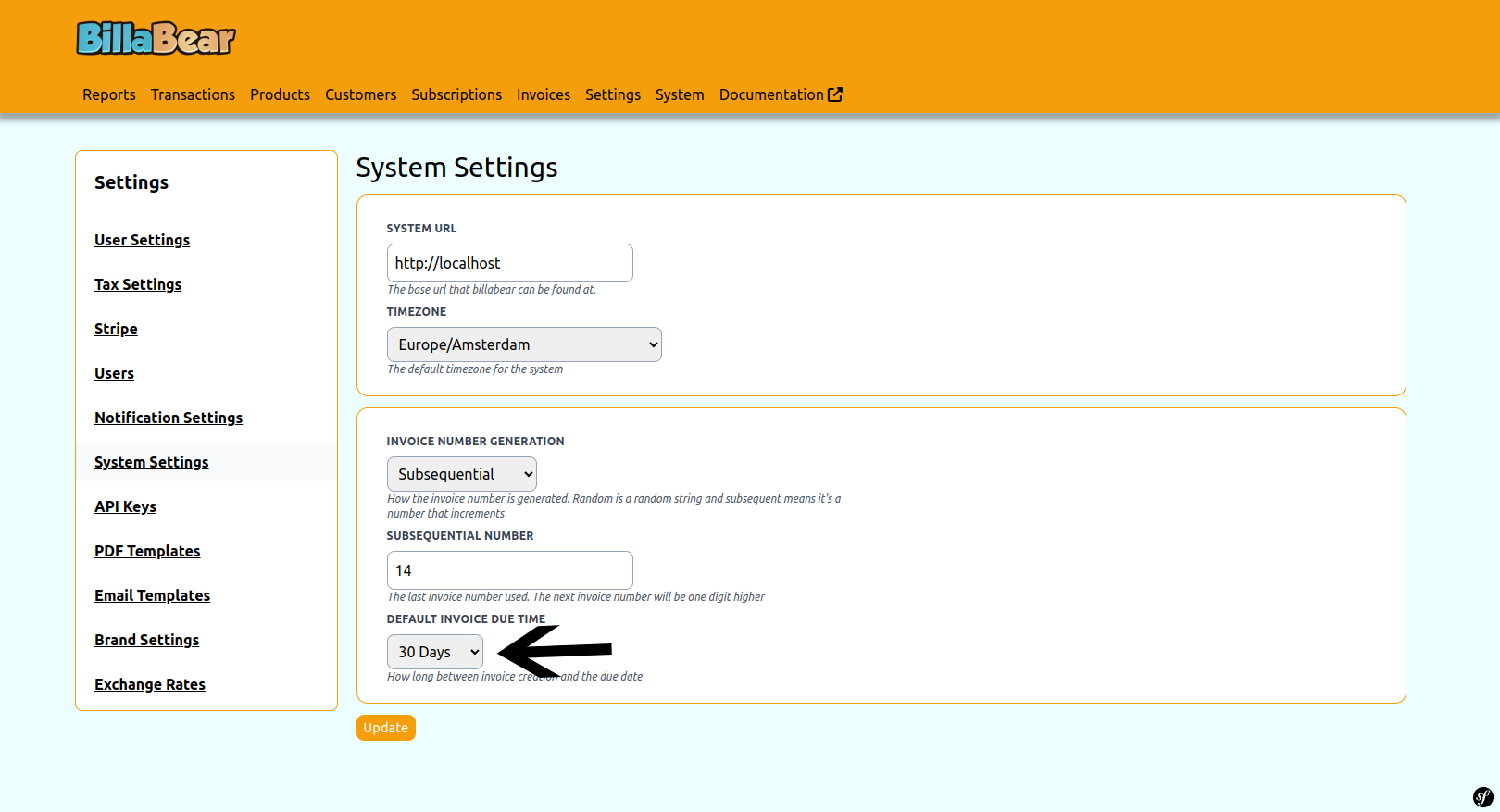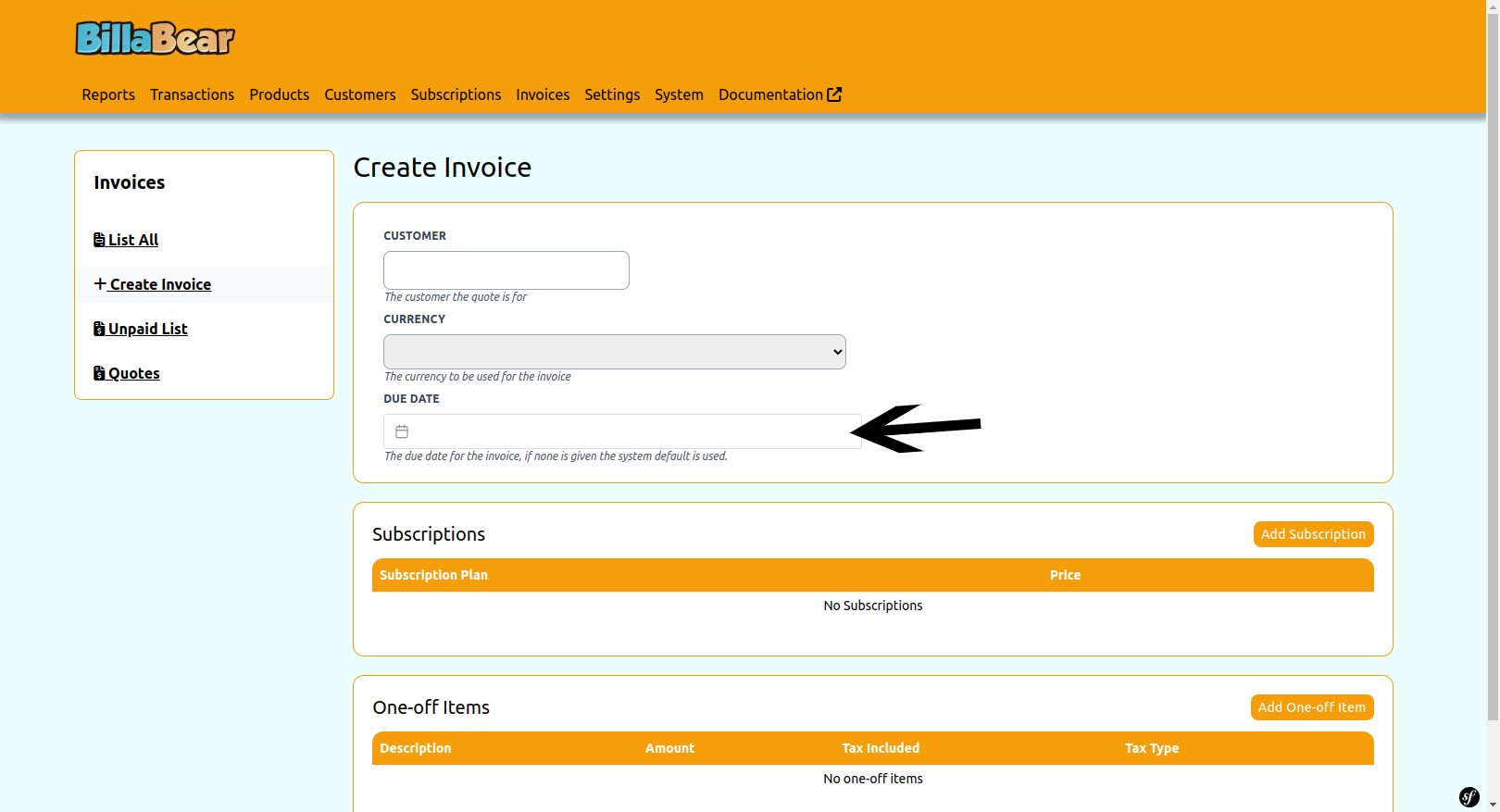Invoice Due Dates
When invoicing customers, it's important to clearly communicate when payment is expected. BillaBear allows you to set due dates for invoices, either using a system-wide default or specifying dates for individual invoices.
Understanding Due Dates
The due date on an invoice indicates when the customer should make payment. BillaBear offers two ways to manage due dates:
- System Default - Set a standard payment term (e.g., 30 days) that applies to all invoices
- Manual Setting - Specify a custom due date when creating an individual invoice
Setting the System Default Due Date
The system default determines how many days after invoice creation the payment is due. This default is used whenever a specific due date isn't provided during invoice creation.
How to Set the System Default
- Navigate to Settings in the main menu
- Select System Settings
- Find the Invoice Due Date section
- Enter the number of days for your standard payment terms
- Click Save or Update

Setting a Due Date for Individual Invoices
When creating an invoice manually, you can specify a custom due date that overrides the system default.
How to Set a Custom Due Date
- Navigate to the Create Invoice page
- Fill in the customer and line item details
- In the Due Date field, either:
- Enter a specific date using the date picker
- Leave it blank to use the system default
- Complete the invoice creation process

Best Practices for Due Dates
- Set a system default that aligns with your standard business terms
- Use custom due dates for special arrangements with specific customers
- Consider industry standards and local business practices when setting due dates
- Ensure your due dates comply with any contractual agreements you have with customers